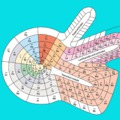Földes Károly átvett tájékoztató közlése
© Georges Canguilhem, Trans. David M. Peña-Guzmán 2016 ISSN: 1832-5203 Foucault Studies, No. 21, pp. 200-213, June 201
TRANSLATION
What is Psychology?* Georges Canguilhem
The psychologist seems to be more embarrassed by the question “What is psychology?” than the philosopher by the question “What is philosophy?” The reason is that philosophy is constituted by the question of its sense and essence much more than it is defined by any answer to it. The fact that this question is reborn incessantly without ever admitting a satisfying response is, for those who would like to call themselves “philosophers,” a reason for humility and not a cause for humiliation. But, for psychology, the question of its essence, or more modestly of its concept, also brings into question the very existence of the psychologist since, lacking the ability to explain what he is, he has difficulty explaining what
* Georges Canguilhem’s “Qu’est-ce que la psychologie?” was first delivered at the Collège Philosophique on December 18, 1956. It was then published in Revue de Métaphysique et de Morale in 1958. Eight years later, in 1966, it appeared in the second volume of the Cahiers pour l’Analyse, which bore its title. This volume included a “Foreword” by Jean-Claude Milner, a “Supplement” (“Les graphes de Jacques Lacan, commentés par Jacques- Alain Miller”), and contributions by Robert Pagès, Alain Grosrichard, Chevalier de Merian, Serge Leclaire, and Thomas Herbert. Translation source: Georges Canguilhem, “Qu’est-ce que la psychologie?” Revue de Métaphysique et de Morale, Vol. 63, No. 1 (January-March, 1958), 12-25. Translator’s note: Translation work is labor-intensive and tiring, on a good day. Here, I have tried to stay as close as possible to the letter of Canguilhem’s text. For example, unlike other translations (in both English and Spanish), this one reproduces all the section- and paragraph-breaks of the original 1958 article. And while works mentioned in the body of the essay are presented here under the title of their English translations (when available), all references have been preserved in their original French (mainly to protect the accuracy of page references). In spite of my largely literalist approach to translation, however, there were moments I was forced to abandon this path. For the sake of readability, for instance, I made some stylistic calls. I changed a few commas to semi-colons and, once or twice, introduced a period. I added quotation marks in places where the mention/use distinction was helpful and appropriate. I relied on dashes and parentheses to break up some the longer and more cumbersome sentences in the original text. I also translated idiomatic expressions in French into idiomatic expressions in English given that a strict attachment to the literal meaning would have resulted in a bizarre, and bizarrely fractured, style entirely foreign to Canguilhem himself. Finally, where translation proved particularly onerous, I opted for presenting the original French alongside the English translation in bracketed form. Special thanks to Rabih Hage, Simon Truwant, and Ellie Anderson for aiding and abetting in this translation. 200
Foucault Studies, No. 21, pp. 200-213.
he does. He can justify his importance as a specialist only by pointing to an always-debatable “efficiency” [efficacité]. And some would not care one bit if this “efficiency” engendered, in the philosopher, an inferiority complex.
In saying of the psychologist’s efficiency that it is debatable, we do not mean that it is illusory; we simply want to note that it will remain, without doubt, ill-founded as long as it has not been shown to be really due to the application of a science, which is to say, as long as the status of psychology is not fixed in such a way that one would be forced to take it for something more and better than a composite empiricism that has been codified, literally, for the sake of teaching. In fact, from a good number of works in psychology one gets the impression that they add up to a philosophy without rigor, an ethics without exigency, and a medicine without control. Philosophy without rigor because it is eclectic under the pretense of objectivity; ethics without exigency because it teams up with ethological experiences that are themselves without critique, e.g. those of the confessor, of the educator, of the leader, of the judge, etc.; and medicine without control because of the three kinds of illnesses most unintelligible and least curable—i.e., illnesses of the skin, illness of the nerves, and mental illnesses—the study and treatment of the last two have always furnished to psychology its observations and hypotheses.
Therefore, it seems that in asking “What is psychology?” one poses a question that is neither impertinent nor futile.
For a long time we have looked for the unity characteristic of the concept of a science in the direction of its object. The object would dictate the method used for the study of its properties. But this was, at bottom, to limit science to the investigation of a fact [un donné], to the exploration of a domain. When it became clear that every science more or less gives itself its fact and appropriates for itself, in this way, what one calls its “domain,” the concept of a science became progressively more focused on its method than on its object. Or more exactly, the expression “object of science” acquired a new sense. The object of science is no longer only the specific domain of problems and obstacles to resolve, it is also the intention and target of the subject of science, it is the specific project that constitutes a theoretical conscience as such. One could respond to the question “What is psychology?” by making appear the unity of its domain in spite of the multiplicity of methodological projects. To this type of response belongs that brilliantly given by Professor Daniel Lagache, in 1947, to a question posed, in 1936, by Édouard Clasparède. 1 The unity of psychology is here sought in its possible definition as general theory of behavior—a synthesis of experimental psychology, clinical psychology, psychoanalysis, social psychology, and ethnology.
1 Édouard Clasparède, L’unite de la pscyhologie (Paris: PUF, 1949).
201
Canguilhem: What is Psychology?
On a closer look, however, we notice that perhaps this unity looks like a pact of peaceful coexistence signed by professionals more than a logical essence obtained by the revelation of constancy across a variety of cases. Of the two tendencies between which Professor Lagache want to find a solid accord—i.e. the naturalist one (experimental psychology) and the humanist (clinical psychology)—, one gets the impression that the second carries, for him, more weight. Without a doubt, this is what explains the absence of animal psychology from this review of disputing parties. True, we see very clearly that it is contained by experimental psychology—which is in large part a psychology of animals—, but it is contained there only as material to which the method is applied. In reality, a psychology can be considered “experimental” only on account of its method, and not on account of its object. Meanwhile, and despite appearances, it is on account of its object more than its method that a psychology is said to be “clinical,” “psychoanalytic,” “social,” “ethnological.” All these adjectives are indicative of one and the same object of study: man, loquacious or taciturn, sociable or unsociable. In light of this, can one rigorously speak about a general theory of behavior as long as the question of whether there is continuity or rupture between human language and animal language, between human and animal society, remains unsolved? It is certainly possible that, on this point, it may not be philosophy that gets to decide, but science, in fact many sciences, psychology included. But in order to define itself, psychology cannot prejudge what it is called upon to judge. Otherwise, it is inevitable that in presenting itself as the general theory of behavior, psychology will incorporate some idea of Man. Hence, it is necessary that we allow philosophy to question psychology about where this idea comes from, and whether it may not be, ultimately, from some philosophy.
Because we are not psychologists, we would like to broach the fundamental question posed here via a different route. That is to say, we propose to explore whether or not the unity of a project can confer to the different types of disciplines called “psychological” their eventual unity. But our method of investigation demands a step back [un recul]. Exploring how various domains overlap can be done by their separate investigation and by comparing them with one another in the present (about a decade in the case of Professor Lagache). Exploring whether certain projects coincide demands that we extract the sense of each of them, not at the moment it gets lost in the automatism of application but at the moment it emerges from the situation that provokes it. Searching for an answer to the question “What is psychology?” becomes, for us, the obligation of sketching a history of psychology, one considered of course solely in relation to its orientations and in connection with the history of philosophy and the history of the sciences; a history necessarily teleological since it is destined to convey to the posed question the assumed original sense of the diverse disciplines, methods, or enterprises whose current disparity legitimizes this same question.
202
Foucault Studies, No. 21, pp. 200-213.
Psychology as natural science Although etymologically “psychology” means science of the soul, it is remarkable that an independent psychology is missing, in both idea and fact, from the philosophical systems of antiquity, where the psyche, or soul, is taken to be a natural being. There, investigations of the soul find themselves split between metaphysics, logic, and physics. The Aristotelian treatise On the Soul is in reality a treatise of general biology, one of his writings consecrated to physics. After Aristotle, and according to the tradition of the School, the “Courses of Philosophy” at the beginning of the 17th century still discuss the soul in the chapter on physics.2 The object of physics is the natural and organized body that has life as a potentiality [ayant la vie en puissance]. Thus, physics treats the soul as the form of the living body and not as a substance separate from matter. From this point of view, a study of the organs of knowledge—that is to say, of the external senses (the five usual senses) and the internal senses (common sense, fantasy, memory)—does not differ in any regard from a study of the organs of respiration or digestion. The soul is a natural object of study, a form in the hierarchy of forms, even if its essential function is the knowledge of forms. The science of the soul is a province of physiology, in its original and universal sense as a theory of nature.
It is to this ancient conception that an aspect of modern psychology returns without interruption: psycho-physiology (for a long time exclusively considered as psycho-neurology but today, also, as psycho-endocrinology) and psycho-pathology (as medical discipline). In this respect, it does not seem superfluous to recall that well before the two revolutions that permitted the development of modern physiology, those of Harvey and Lavoisier, a revolution no less important than those produced by the theory of circulation and respiration was set in motion by Galen when he established, clinically and experimentally—after the doctors of the School of Alexandria (Herophilus and Erasistratus), against Aristotelian doctrine, and in accordance with the anticipations of Alcmaeon, Hippocrates, and Plato—that it is the brain and not the heart that is the organ of sensation and movement, and the seat of the soul. Galen truly founds an uninterrupted filiation of research, an empirical pneumatology for centuries, in which the fundamental piece is the theory of animal spirits, and which was dethroned and superseded at the end of the 18th century by electro-neurology. While decidedly pluralist in his conception of the relationship between the psychic functions and the encephalic organs, Gall proceeds directly from Galen and dominates, in spite of his extravagances, all investigations of cerebral localizations during the first sixty years of the 19th century, until Broca.
In sum, the psychology of today, as psycho-physiology and psycho-pathology, always returns to the 2nd century.
2 Cf. Scipion De Pleix, Corps de Philosophie contenant la Logique, la Physique, la Métaphysique et l’Ethique (Genève, 1636 [1st ed., Paris, 1607]).
203
Canguilhem: What is Psychology?
rty to that uninterrupted debate in which metaphysics gives direction to psychology without thereby giving up the right to say a word about the relationship between the physical and the psychic. For a long time, this relationship has been formulated as somato-physical before becoming psycho-somatic. This reversal is the same, moreover, as the one carried out on the signification of the unconscious. If one identifies psychism and consciousness—based, rightly or wrongly, on the authority of Descartes—, the unconscious turns out to be of a physical order. If one assumes that the psychic can be unconscious, psychology does not reduce to the science of consciousness. And the psychic is no longer only what is hidden, but also what hides itself, that which one hides; it is not simply the intimate, but also—a term Bossuet takes from the mystics—the abyssal. Psychology is no longer just the science of intimacy, but the science of the profundities of the soul.
208
Foucault Studies, No. 21, pp. 200-213.




